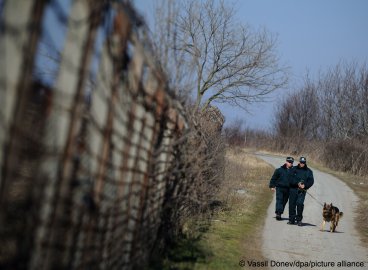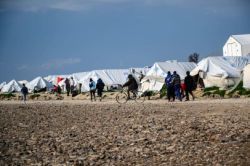Exclusive: Why are migrant pushbacks from Bulgaria to Turkey and Greece soaring?
Source: InfoMigrants: reliable and verified news for migrants – InfoMigrants
The Bulgarian-Turkish border is seeing an upsurge in pushbacks and violence against migrants. InfoMigrants went to Bulgaria to find out why.
The Bulgarian-Turkish border has seen a growing number of pushbacks and violence against migrants in the last year, prompting human rights workers to demand accountability. But with a culture of impunity within Bulgaria’s police force and the country’s ambitions to join Schengen by the end of 2023 – combined with the European Union’s goals of curbing irregular migration – justice anytime soon seems unlikely.
Pushbacks are “a very serious problem” in Bulgaria, Krassimir Kanev, chair of the human rights non-profit Bulgarian Helsinki Committee, told InfoMigrants. His office in the Bulgarian capital of Sofia has dealt with scores of cases concerning violent pushbacks and migrant deaths on Bulgarian soil.
“There have been many cases of physical ill treatment, sometimes resulting in death…and use of firearms,” he told InfoMigrants.
Last year alone, an estimated 5,270 pushbacks affecting 87,650 people occurred at the Bulgarian-Turkish border, according to the Bulgarian Helsinki Committee. Actual numbers, however, are believed to be much higher.
The figure is almost double the number registered in 2021 – some 2,510 pushbacks involving nearly 45,000 people. In 2020, the Committee reported that around 15,170 people were affected.
Pushbacks happen when a country uses measures to force refugees and migrants out of their territory while obstructing access to legal counsel and other support. They are prohibited under European Union (EU) and international law, violating the 1951 Refugee Convention principle of non-refoulement, which provides that refugees should not be returned to a country where they face serious threats to their life or freedom.
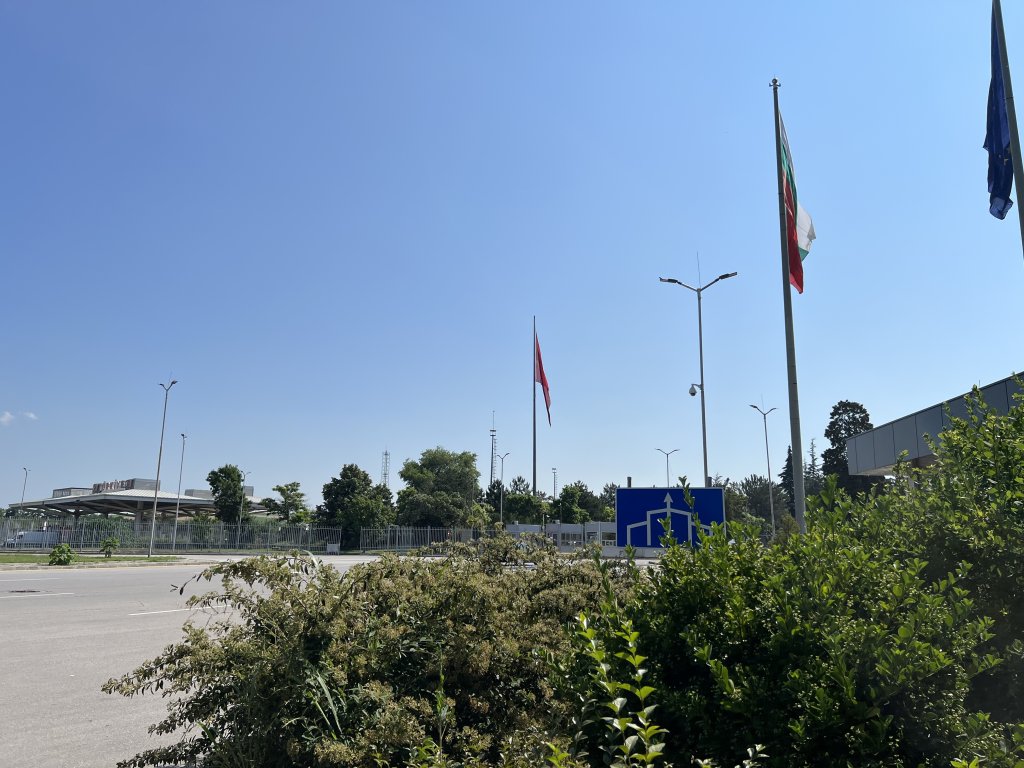
In interviews carried out in Bulgaria in mid-June, migrants, humanitarian workers, human rights experts and lawyers confirmed to InfoMigrants that violence against migrants and pushbacks at the Bulgarian-Turkish border have increased in the last two years.
The Bulgarian government, however, maintains that “checks have been carried out of formal pushback signals made by foreigners who tried to illegally cross the state border of Bulgaria. The checks ended with the finding that there was no evidence of physical violence.”
“It should be noted that many of the claims of ‘pushbacks’ are unfounded,” a ministry spokesperson told InfoMigrants.
Greek migrant repression marks turning point in Bulgaria
Hamid Khoshseiar, a translator and coordinator at the Mission Wings Foundation in Harmanli near to the Bulgarian-Turkish border, works with migrants from the town’s refugee reception center. He said more migrants started trying to enter the EU via the Bulgarian-Turkish border after the Greek government’s swing to the right in 2019. Those numbers have climbed even higher in the last year.
“Around a year ago, we started to see a new practice. People were coming in our office to be registered…because of the increase of the number of pushbacks at the border,” Khoshseiar told InfoMigrants.
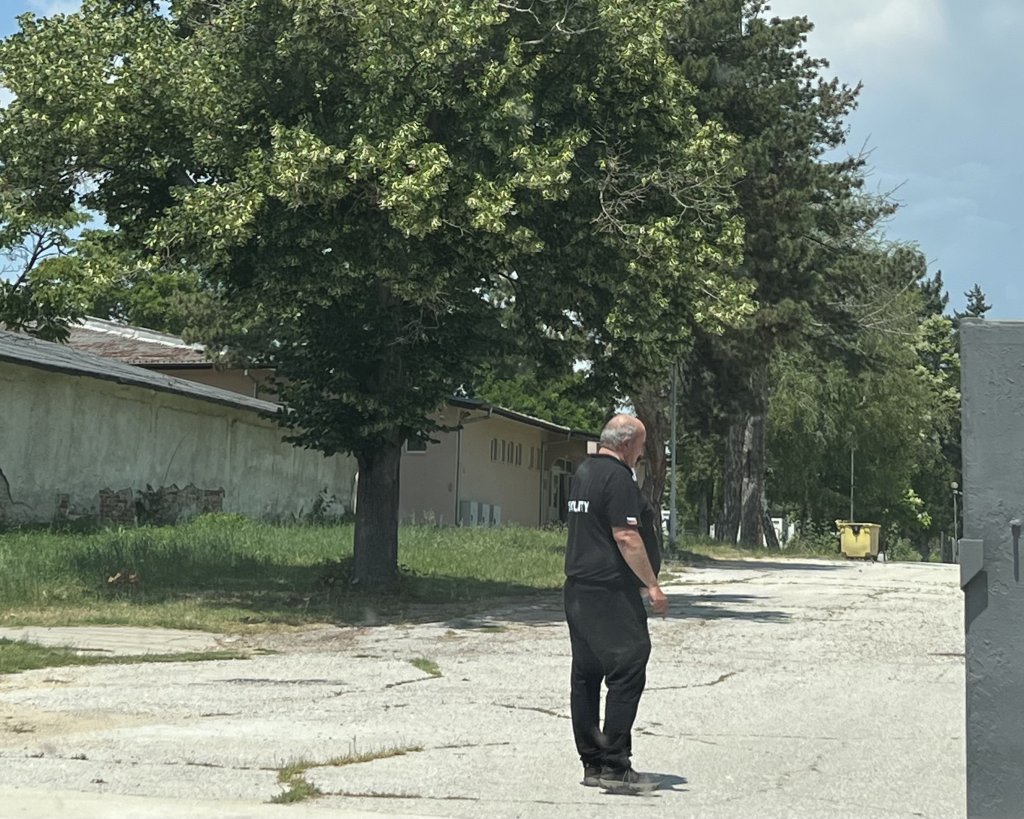
In August 2022, a bus carrying at least 47 migrants collided with a police car in Bulgaria, leaving two officers dead.
“After that, the border escalated and became very intensive,” with “more forces,” Khoshseiar explained. “Even the army started to help border police and the gendarmerie [military police].”
Bulgarian authorities have been stripping migrants at the border before “pushing them back (into Turkey) without any clothes,” Khoshseiar said, adding, “We also heard a lot about beatings on the border.” Groups of border police would deliberately open up a section of the border fence so that migrants would pass through, then “hit everyone who was crossing,” he said.
Khoshseiar added that many migrants told him it was their fifth or sixth time attempting to enter Bulgarian territory.
In order to find out which forces are involved in pushbacks, Khoshseiar also asks his clients about the color of their clothing.
“[The] forces … involved [are] technically all of them. Border police with green, gendarmerie with dark blue, and police with blue – it’s not specifically one,” he said.
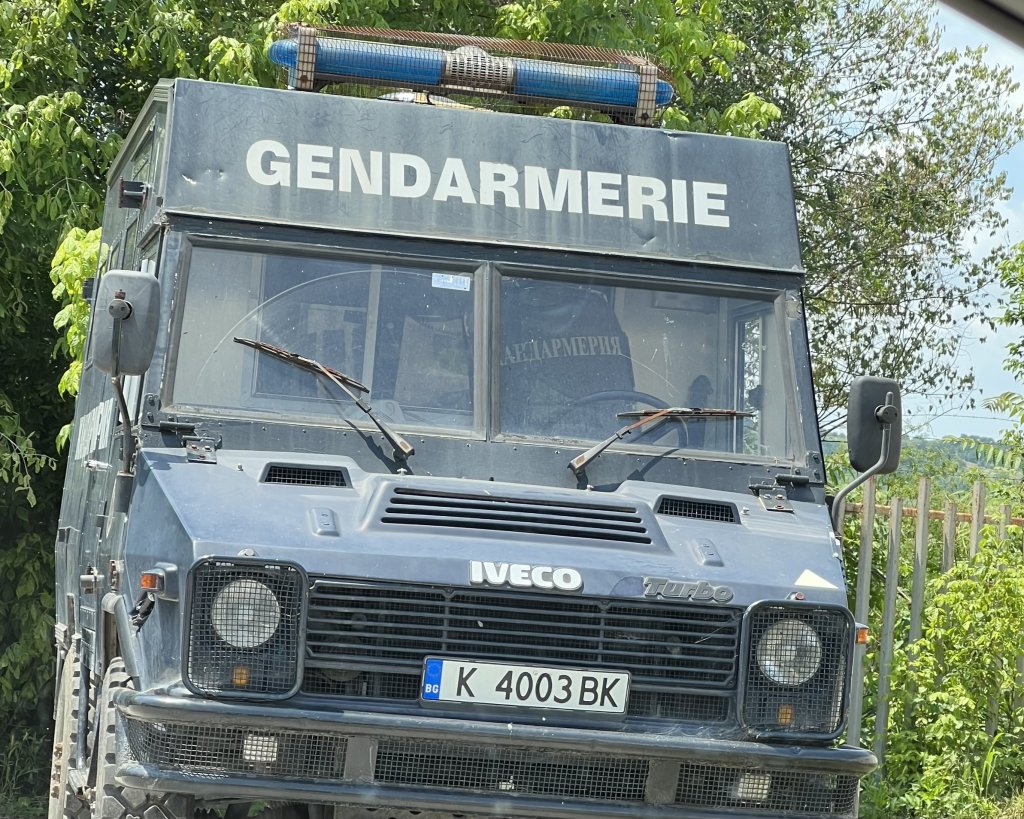
Khoshseiar is also concerned about chain pushbacks, a practice often initiated by European countries where people are pushed back through multiple consecutive countries.
“We heard from people… ‘Bulgarian police arrested us, they started beating us. They sent us back to Greece. After that, the Greece police started beating us and send us back to Turkey,’ – chain pushbacks.”
Based on research InfoMigrants carried out in Bulgaria, the rise in pushbacks and violence against migrants at the Bulgarian-Turkish border can be attributed to the following:
- Overall increase in migrants via the Bulgarian-Turkish border
- Lack of accountability and impunity among border police
- Increased political pressure from the EU and ambition to join the Schengen area
- Enhanced surveillance at the Bulgarian-Turkish border
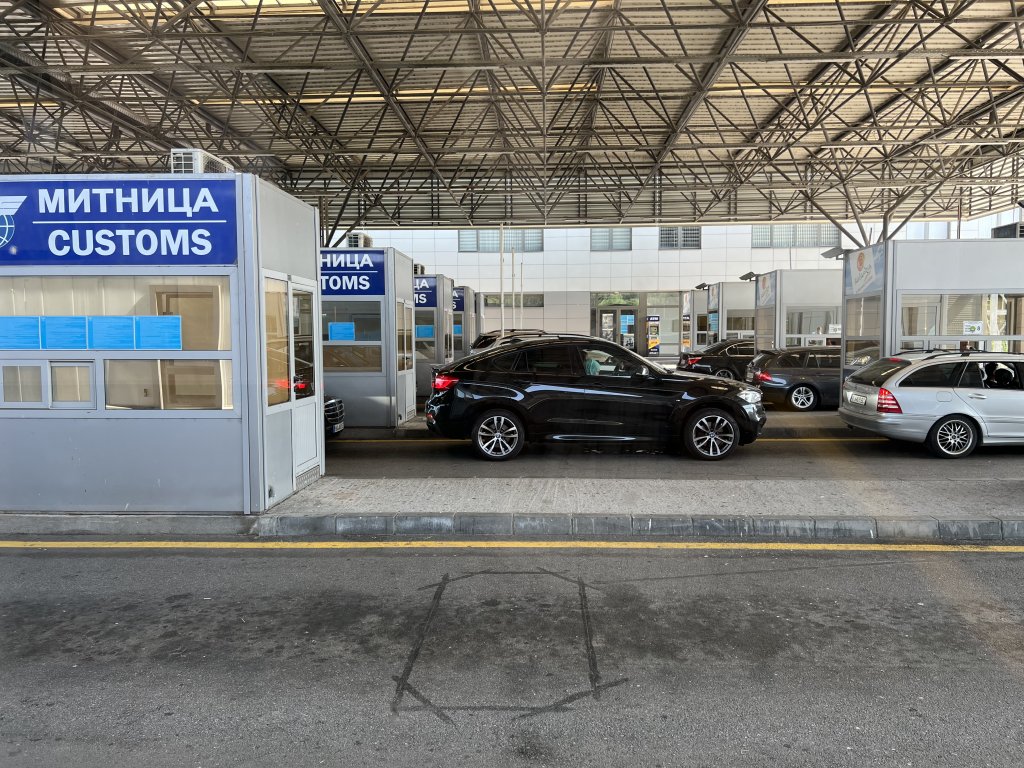
Bulgarian-Turkish border sees jump in migrant arrivals
Boris Cheshirkov, an external relations officer at the UN refugee agency UNHCR in Sofia, told InfoMigrants Bulgaria received some 20,000 asylum applications last year – “the highest number in a single year over 30 years of recorded statistics.”
He said the main countries of origin were Syria, Afghanistan and Morocco, adding that this trend has largely continued in 2023. The number of refugees, asylum seekers and stateless persons at the end of 2022 was almost double than that of the year before.
The Taliban takeover of Afghanistan in 2021 and ongoing conflict in Syria are pushing citizens to journey to Bulgaria, while continued economic and political instability in neighboring Turkey – as well as the devastating aftermath of the February earthquake – are driving Syrians previously living in Turkey to cross the border into Bulgaria.
Migration activities have also resumed following the COVID-19 pandemic. In addition, slow and inefficient application processes across the EU have prompted many more to search for unofficial ways to enter the bloc, usually through the use of people smugglers.
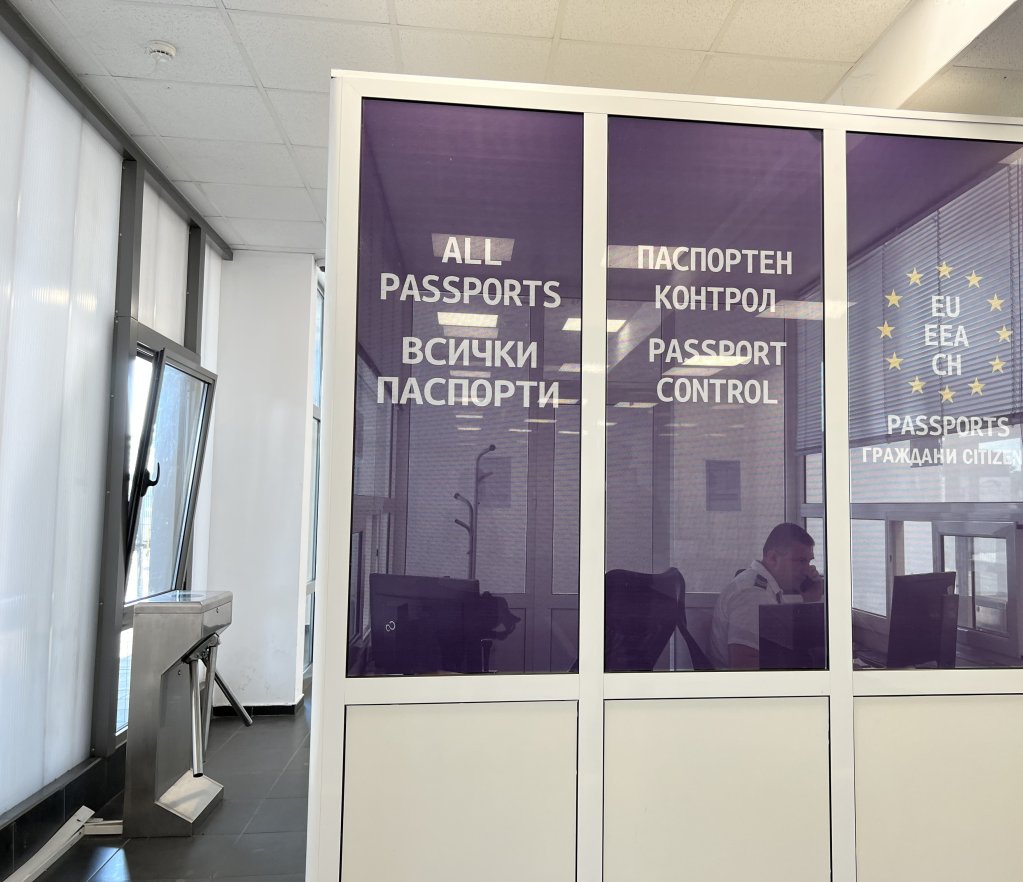
The trilateral Bulgaria-Greece-Turkey contact center at the Kapitan Andreevo border checkpoint confirmed that the Bulgarian-Turkish border has seen another strong wave of irregular migration in the past year, and is making prevention their top priority.
“The first and biggest issue is cross-border crime related to illegal migration – foremost in terms of volume,” a Bulgarian border police spokesperson at the trilateral center told InfoMigrants. The center was established in 2016 soon after refugee arrivals in Europe peaked in 2015.
Higher migrant numbers arguably increase the probability of pushbacks. Migrants are also increasingly aiming for the Bulgarian-Turkish border as other European countries beef up security.
“In the past, much more migration has been through Greece than through Bulgaria,” Kanev from the Helsinki Committee said. But over the past few years the Greek government has implemented tougher anti-migrant measures, bolstering sea and border patrols.
The Greek land border with Turkey is also much shorter, making it easier to surveil than its Bulgarian counterpart, which is longer and runs through mountainous, dense forests.
Migrants are also increasingly opting for the Bulgarian-Turkish border after hearing stories about violent pushbacks and aggressive behavior from Greek authorities at the Greek-Turkish border or experiencing violence firsthand in a previous failed crossing at the Greek border.
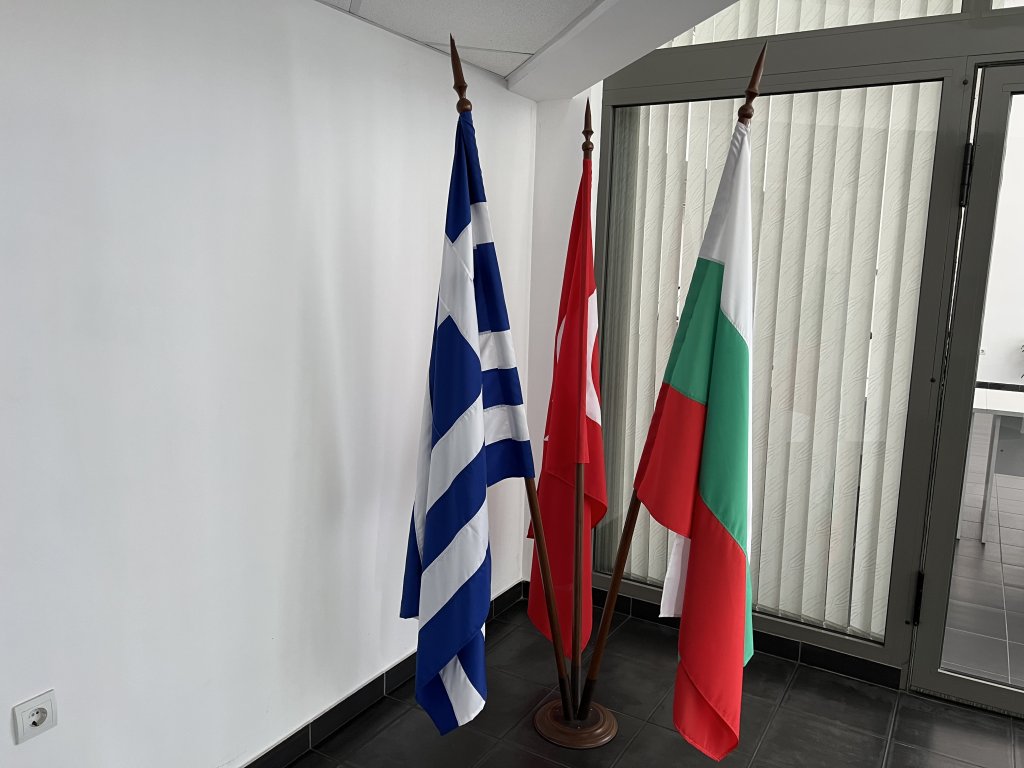
Authorities beat, stripped, robbed and shot at migrants
Diana Dimova, head of the Bulgarian human rights organization Mission Wings, said nearly 700 migrants who crossed the Bulgarian-Turkish border have passed through her consultation center in Stara Zagora city in the last year.
“The practices they (migrants) share are: being stripped, robbing of personal belongings, phones and money, beatings with police batons, harassment with police dogs and illegal detention for 24-72 hours in unregulated premises,” Dimova told InfoMigrants.
She and her colleagues have also traveled to Turkey to film the testimonies of scores of refugees who recount being abused and pushed back.
“The resistance from the authorities to cover up these crimes is great,” she said, but did not elaborate.
Many migrants walk through dense forested areas, crossing the Strandja Nature Park at the border with Turkey. They typically walk four to eight days without food or water, and smugglers “give them pills to endure the journey,” Dimova said. “Many are dehydrated and exhausted to the limit. Huge numbers of people are dying in the forests, mostly in the area of Sredets municipality.”
GPS coordinates given by migrants in distress to hotlines in Europe “are rarely responded to by border police,” she said.
“Usually we call 112 [cost free emergency number], who forward the signal to the border police. We have found that in many cases the border police do not look for them at all or leave them to their fate. In most cases, when 112 is called insistently and help is sought, they arrive at the scene of the tragedy, load those who have survived and send them back onto Turkish territory,” Dimova told InfoMigrants.
“Bulgaria does not have a working system for rescuing refugees in distress – many of these people are left to perish in the forests,” she said.
Her foundation is funded by various foreign organizations as the Bulgarian government does not provide them with financial support.
“There are very few organizations in Bulgaria helping refugees. Most do not want to engage in this topic because of negative public opinion” and are pressured by various institutions to stop their activities, Dimova explained.
A number of organizations focusing on refugees in Bulgaria are under investigation, including Mission Wings. The human rights foundation has been under surveillance for over 10 months after Bulgaria’s State Agency for Refugees flagged suspicions that it is involved in the trafficking and smuggling of unaccompanied refugee children.
“The national security services pressured and harassed us for nearly a year, trying to stop us from helping those arriving from the Bulgarian-Turkish border,” Dimova told InfoMigrants.
Journalists expose migrant shooting
Sofia Bahudela, an Arabic language worker at Caritas Bulgaria, said the charity is very familiar with migrants who are “extremely traumatized when entering the country.”
“Everything is very dependent on the people serving as border guards,” she told InfoMigrants.
Recounting the story of Ali Husseini, a young man who had been granted protection status in Bulgaria, Bahudela explains how when he traveled to the border to find his brother in 2022, he was stripped, beaten, robbed and then pushed into Turkey.
After a week of talks with a lawyer and a trip to Istanbul, he was able to return to Bulgaria, but had to wait a further five months to have his ID reissued. His brother, meanwhile, was deported from Turkey to Afghanistan.
In another case, the Bulgarian government repeatedly rejected accusations that its border guards shot a Syrian refugee in October 2022 after a video released two months after the incident showed a man being fired at on the Bulgarian-Turkish border.
The video was part of a joint investigation by several European media outlets led by the Netherlands-based Lighthouse Reports. In a separate video captured days later, the man identified himself as 19-year-old Abdullah El Rustum of Syria.
He said he was shot by Bulgarian border officers after his group was caught trying to enter Bulgaria irregularly. The Lighthouse investigation found that unarmed refugees were fired at from the same position on the Bulgarian side, where the border police were seen to be located.
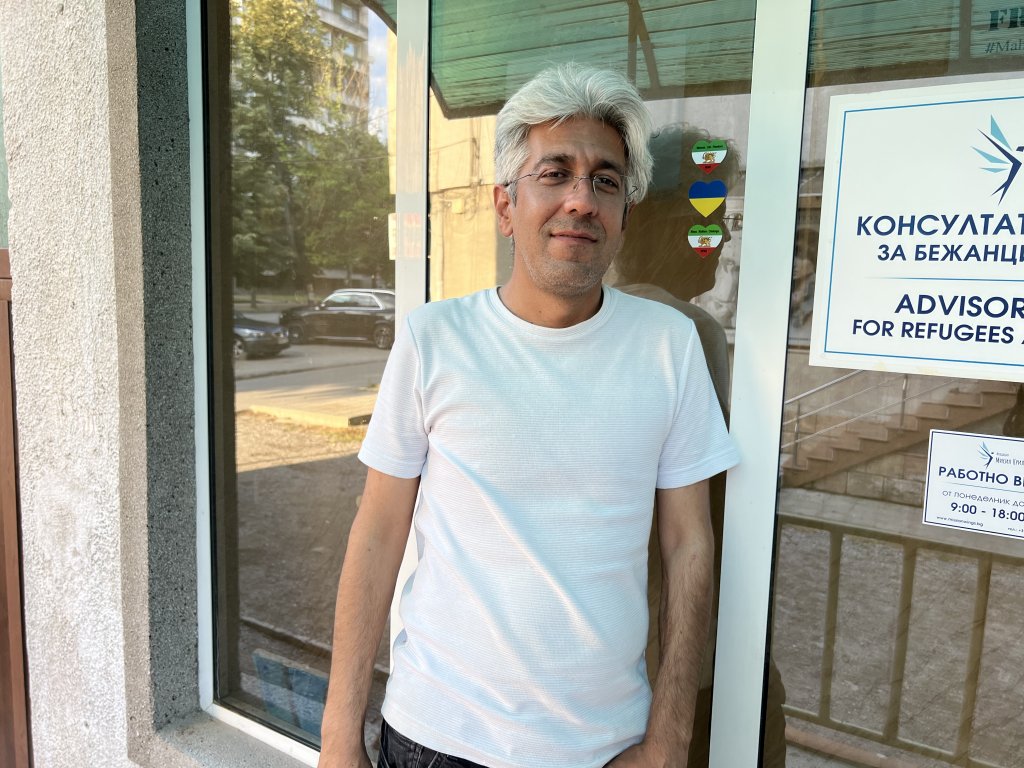
Maria Cheresheva, a Bulgarian journalist based in the capital Sofia, participated in the Lighthouse probe. She has since been denied access to the Bulgarian-Turkish border on numerous occasions, and said she rarely receives comments from the government on her work.
“There has been no information or progress on this investigation” despite international attention drummed up by European media outlets, Cheresheva told InfoMigrants.
Testimonies of migrants who were pushed back and suffered violence at the border “are rarely taken into account,” Cheresheva explained, adding that she has dealt with a number of similar cases, but noted it’s “extremely difficult to prove who caused the violence.”
The stressful and violent situations of pushbacks also make it difficult for migrants to identify the people responsible for the illegal acts: Are they Bulgarian border police, gendarmerie, European Border and Coast Guard Agency (Frontex) officers, or vigilantes?
Women and children face increased risks at border crossing
Women who attempt to enter Europe via the Bulgarian-Turkish border face heightened risks of sexual violence.
“We have cases of women who say they have experienced sexual violence on the way to Bulgaria at the hands of traffickers or police officers in Turkey. Some women have had to pay for their journey to Europe with sex due to lack of financial means,” said Dimova of Mission Wings.
Cases of rape and abuse are difficult to record because “many of the women do not recognize the violence… as a problem or are ashamed to share,” she told InfoMigrants.
The Bulgarian Helsinki Committee also confirmed it received reports of sexual harassment and rape from migrants.
Chairman Kanev cited a female migrant who informed the Committee that she was stripped naked and subjected to sexual harassment by Bulgarian authorities.
“I suspect that she was also raped, maybe, but she didn’t say that,” Kanev said.
Unaccompanied minors also face greater risks at the Bulgarian-Turkish border, journalist Cheresheva said, because there is “nobody to protect them on the way.” Many problems can arise because the “mistreatment and violence happens outside of the system.”
Cheresheva said she has interviewed many migrants who experienced violence at the border as minors. One boy she interviewed was kept in a detention center in Bulgaria expecting his asylum procedure to start, but was instead sent back to Turkey, where he was kidnapped. The last Cheresheva heard about the child was that he had been rescued by other refugees living in Turkey.
“With all this violence happening along the borders, not only by authorities but through all kinds of criminal groups, I’m very concerned about the fate of these kids,” Cheresheva said.
Khoshseiar from Mission Wings said he came across two unaccompanied migrant children in Harmanli, a brother and sister aged 12 and 14. After showing them the way to the refugee reception center, he received information that the children had been put in a car and pushed back into Turkey.

Bulgaria is a ‘peaceful country,’ says Syrian barber
Despite the spike in tensions at the Bulgarian-Turkish border, several migrants InfoMigrants spoke to who have made Bulgaria home recounted positive stories of how the country had welcomed them.
Ahmed* is a Syrian barber in Sofia. He journeyed to Bulgaria with a group of friends in 2015, when their country was being torn apart by war and conflict.
“I came through the mountains for three days on the border between Turkey and Bulgaria – the situation was very difficult, very difficult indeed,” he told InfoMigrants from his barbershop in the bustling center of the Bulgarian capital.
“For me personally, there were no issues with the (asylum) documents,” he said.
When asked if he had any issues with border police during the journey, he responded: “No, very good people, really. I swear. I lived in Turkey for nine months. The police there were bad people. In Turkey, not here. I came to Bulgaria because of the police in Turkey, very bad people.”
All of Ahmed’s friends continued on to Germany, except for him.
“I love Bulgaria…I like it, good, peaceful country,” he beamed.
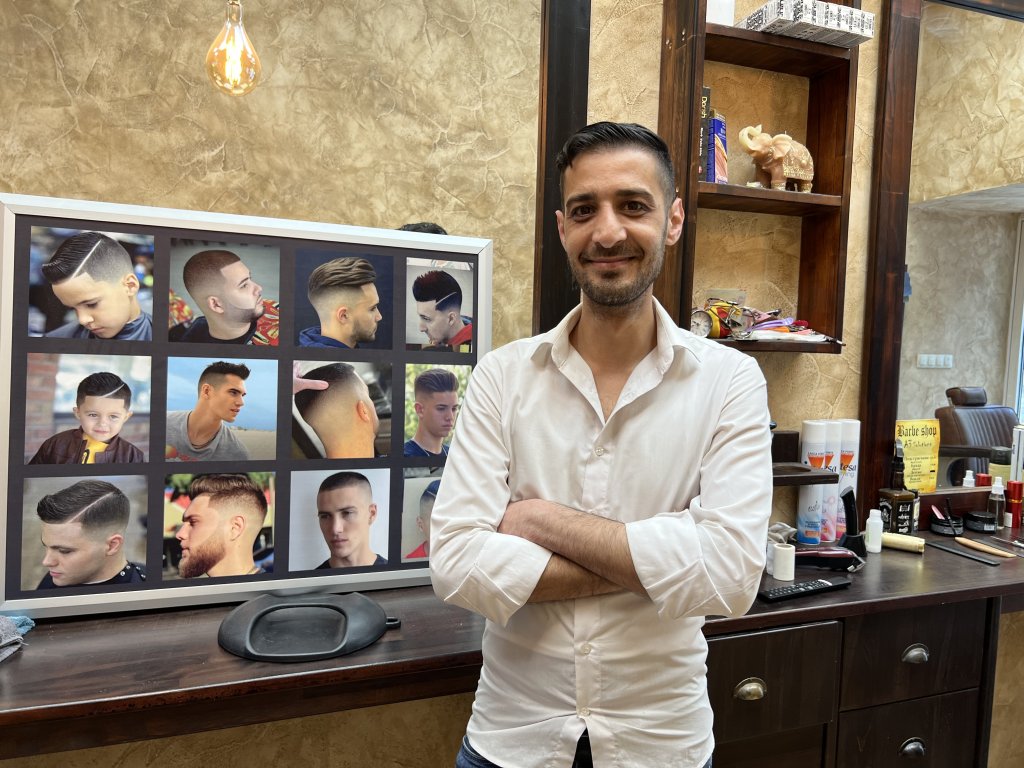
Part 2: Police brutality and impunity
“If you want to abuse a migrant on the Bulgarian-Turkish border, no one is going to hear. No one is going to care about such a person.”
Police brutality, lack of accountability and impunity are main drivers of pushbacks and violence against migrants in Bulgaria, according to the Bulgarian Helsinki Committee.
The NGO has received many complaints from migrants claiming they were “beaten up” by Bulgaria’s border police, its chairman Kanev told InfoMigrants.
“In one of the cases, his eardrum was punctured and he suffered after the beating…he had traces of bruises on his entire body,” Kanev recalled.
The human rights expert also recounted how several years ago police “chased” a group of Afghans at the Bulgarian-Turkish border and a fight broke out.
“They apparently used firearms and one person was killed,” he said, adding that an investigation revealed that the migrant died by the ricochet of a bullet fired.
But despite those findings, Kanev said, “no persons were charged or indicted.”
“Police brutality in Bulgaria is practiced with impunity,” he said, explaining that police using force at the Bulgarian-Turkish border is typically “triggered by some incident.”
“It may be something that somebody had said or…they (the migrants) escaped. They were told to stop and they didn’t. And then after the chase, they were brutalized,” Kanev said, adding that the police have their own idea of justice and feel migrants won’t be appropriately punished by the criminal justice system.
“So they beat them up so that they receive some punishment,” he said.
In Bulgaria’s isolated, dense forests – in the absence of people who can hold them accountable – “they know that nothing is going to happen.”
Diana Dimova, head of the Bulgarian human rights organization Mission Wings, said the Balkan country has “hypocritically hidden years of crimes committed by its officials against people seeking international protection.”
“Even more, illegal practices are deliberately encouraged to ensure that a certain policy is followed – a policy of intolerance, hostility and inhospitality,” she told InfoMigrants.
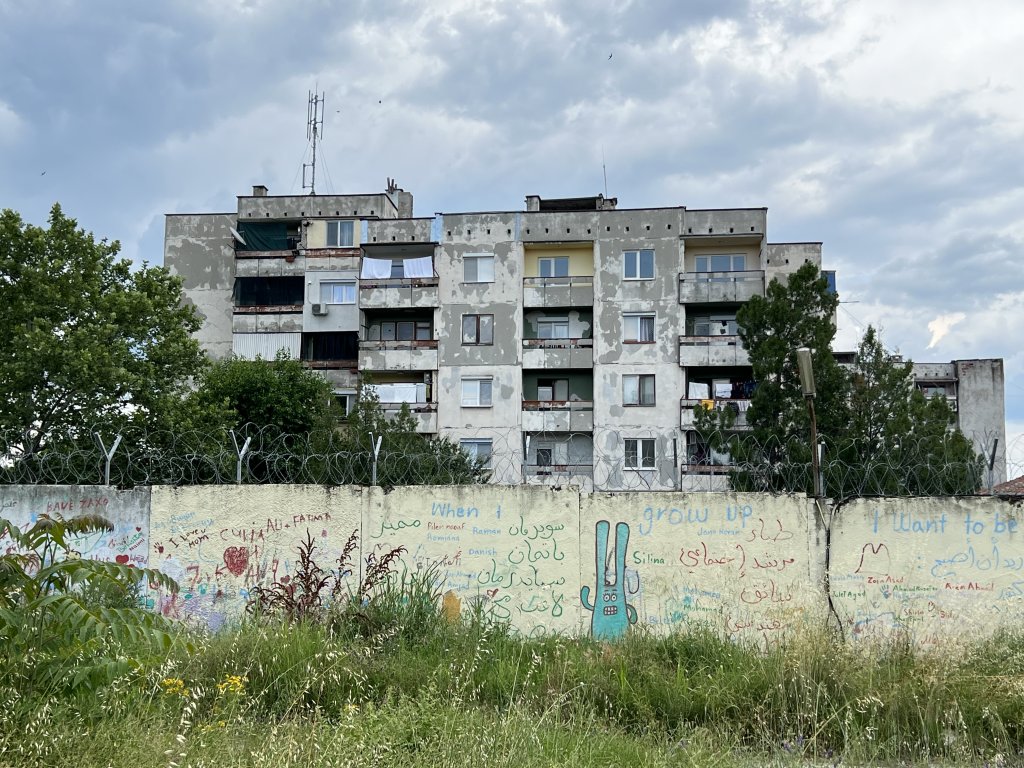
Ethnic minorities at higher risk of police brutality
Kanev said migrants, including other vulnerable ethnic minorities in Bulgaria such as Roma people, face much higher risks at the hands of police because of prejudice and lack of access to legal support.
Migrants “don’t have connections in society who can help them,” he said. “If you decide to use force against a middle class man in the center of Sofia, there would be relatives, maybe media, maybe acquaintances here and there. Lawyers for sure. But if you want to abuse a migrant on the Bulgarian-Turkish border, no one is going to hear. No one is going to care about such a person.”
Maria, a youth volunteer worker at the charity Caritas Sofia, told InfoMigrants she is often shocked at the attitudes towards migrants. “Most people are very unjustifiably cruel to them.”
How viewing Bulgaria as a transit state exacerbates impunity
There is another reason behind the continued violence against migrants in Bulgaria: For most migrants, Bulgaria – part of the Balkan route – is a transit stop to reach other European countries. So migrants are unlikely to officially register experiences of abuse in Bulgaria – doing so would force them to stay longer in the country and jeopardize possibilities of settling in another European country.
“I don’t think any of them are aiming to be registered here. They are aware of this before they come,” Laura Todorova, an assistant social worker and Farsi interpreter at Caritas Sofia, told InfoMigrants.
Mohamed* is a young Syrian waiting for an update on his status at the refugee reception center in Harmanli. He told InfoMigrants that “all Syrians” at the center “will absolutely go to another European country” when they obtain residency.
“A Syrian can’t stay here in this country. There is no food, nobody cares, nothing. Everyone wants to go to Germany, Belgium and Austria. Nobody wants to stay here,” he said.
Abdel*, another young Syrian refugee at the camp, said he and his friends want “residency as quickly as possible to leave from here to Germany or Belgium and get out of this place.”
The group of young Syrians said they were “caught” by authorities, and that many of them used all of their money to pay smugglers in the hope of reaching Western Europe.
Many migrants just want to pass through Bulgaria, and as quickly as possible. Ideally, they would leave no fingerprints or track record of any sort in Bulgaria, Kanev explained.
Migrants wanting to make a complaint are required to be officially registered in Bulgaria and have their fingerprints stored at Eurodac (EU database for identifying asylum seekers and irregular border-crossers).
This means if they wish to continue their journey to Central or Western Europe, there is a risk that authorities in their desired final destination will send them back to Bulgaria. In addition, they must make themselves available for a criminal investigation “which may drag on for months, or even years,” and “they may fear retaliation and victimization by the police,” Kanev said.
“We offer legal assistance to such people, but in the meantime, they disappear;” Kanev said. If investigations into police brutality are conducted, migrant victims usually leave Bulgaria, and as a result the prosecution terminates the investigation.

Part 3: What happens to migrants in detention?
Undocumented migrants jailed in Bulgaria risk violence and abuse inside the Bulgarian prison system. Those at even higher risk are migrants arbitrarily forced into secret cage-like detention centers dubbed Europe’s “black sites” before being pushed back to Turkey.
Migrants journeying the Balkan route hoping to reach Western or Central Europe are often caught while crossing the Bulgarian-Turkish border and immediately convicted in Bulgaria.
“This is a crime,” Kanev from the Bulgarian Helsinki Committee said.
He explained that “if it is just a border crossing…they are usually held in custody for three days.” In these types of cases, migrants are typically sentenced to conditional imprisonment, meaning they would not be sent to prison unless a new offense is committed during the sentence.
Criminal proceedings are concluded by a plea bargain and – with a lawyer present – the person signs agreeing they accept the conviction. They would then be released.
However, if this person is deported, to Turkey for example, and they try to cross the border again and are caught – this would be considered a repeated offense. Judges often prefer a conditional prison sentence because many migrants can’t afford to pay the fine, according to Kanev.
Risks of abuse and violence in Bulgarian prison
Sometimes, migrants are not aware they have received a criminal conviction until they go to another European country and the respective authorities inform them. Or migrants end up placed in a van in Turkey and find themselves in the hands of police on Bulgarian territory. To avoid conviction, they must convince authorities they had no intention of crossing the border irregularly.
In instances where migrants are caught with drugs or are involved with people smuggling – or if they use force against police officers or if they injure somebody – they could face a more serious conviction.
Once in jail, Kanev says, they are more likely to be beaten and physically abused than Bulgarians. “And they have lack of access to resources and no legal assistance. If someone who is illegally in Bulgaria gets accused of a crime, they get put in a jail in Bulgaria, then they get sent back or put in a migrant camp.”
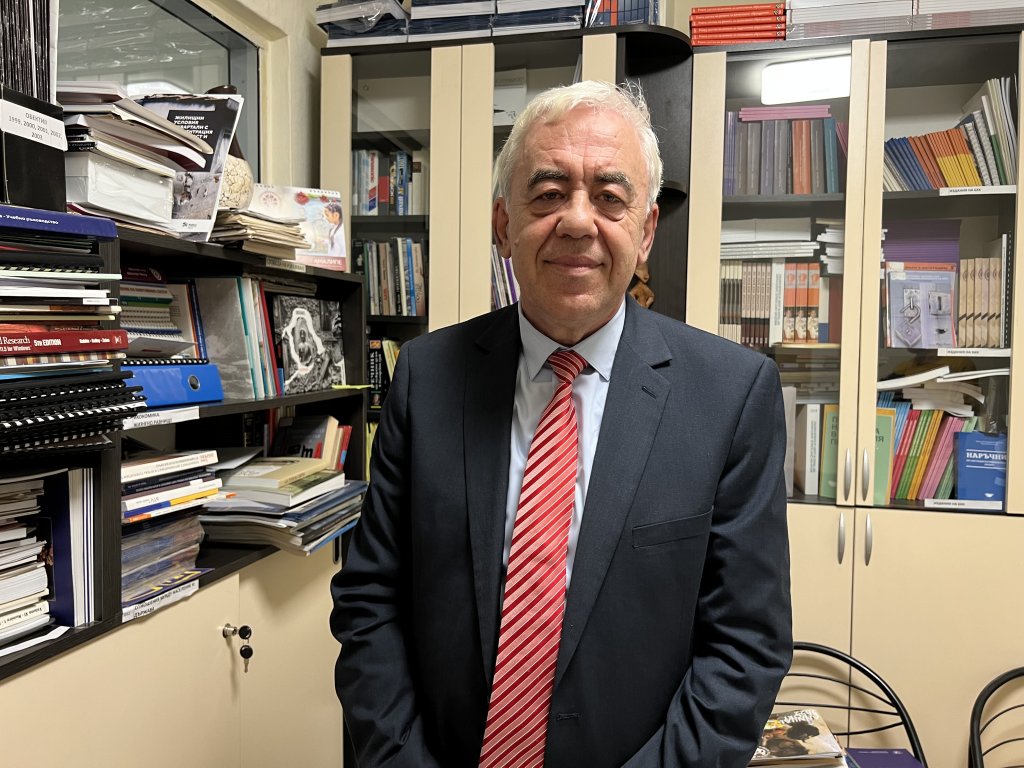
Refugees detained in illegal ‘black sites’
Investigative journalist Cheresheva, who has interviewed scores of migrants in the past decade, confirmed some migrants are “sent back immediately after they crossed the border or even before.”
She also spoke of cases where Bulgarian authorities intercepted irregular migrants who had already found work in the country, then took them to what she described as “black sites” – unofficial secret detention facilities used to “systematically detain people seeking refuge before illegally deporting them.”
“We started finding a lot of testimonies that they (irregular migrants) are kept in a place for a while before being driven back and pushed back to Turkey,” Cheresheva told InfoMigrants.
Migrants spoke of clandestine detention locations in Sredets, a small town close to the Turkish border and the Bulgarian coastline.
“We found this place, a cage-like structure in the border police department in Sredets,” where her team managed to film detained migrants on five separate occasions, Cheresheva said, adding that the captured migrants stand no chance of applying for asylum or even to be arrested and detained in the official detention system of Bulgaria.
“If I’m able to see from the street that this place is full of people who most probably have no legal grounds to be kept there, then it’s probably a public secret for the people that are working in this field,” Cheresheva said.
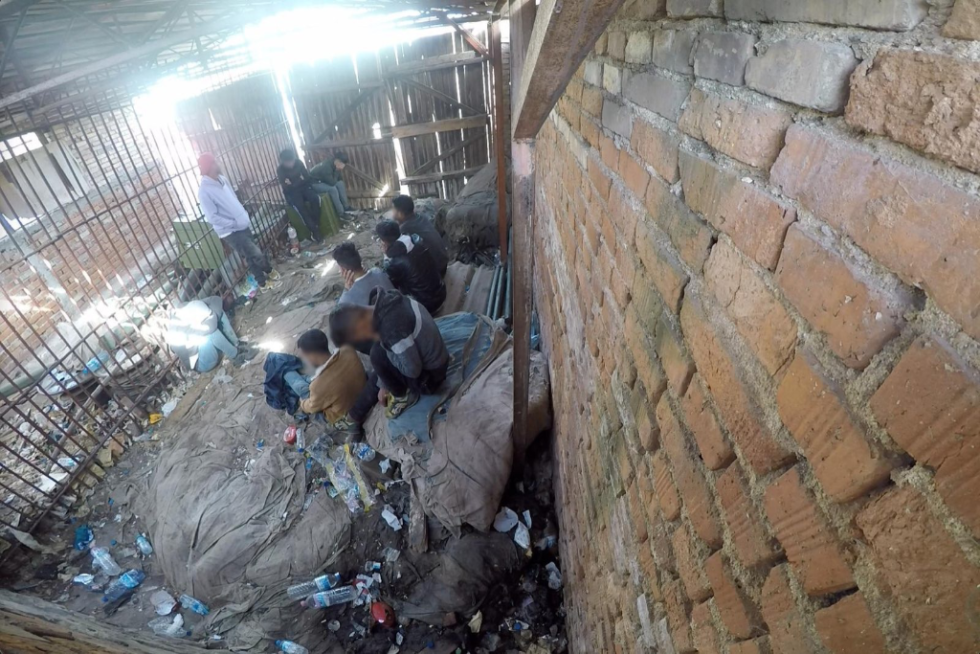
Illegal detention sites are ‘inhuman and degrading’
Kanev from the Bulgarian Helsinki Committee told InfoMigrants his organization is aware of many of these types of structures.
“We have had lots of such cases of people being detained in such types of conditions…They (Bulgarian authorities) can apprehend these people anywhere. And they need to detain them for some period of time while the appropriate authorities come,” he said.
“There may not be a police station or other place of detention or reception center or other such facility around. And this is why they resort to such facilities, although it’s totally illegal.”
Kanev said the conditions of detention may be “very bad, inhuman and degrading” with “no toilets, no places to sleep, nothing.”
Frontex spotted at illegal detention sites
According to its December 2022 report, the team of Lighthouse journalists, including Cheresheva, photographed European Border and Coast Guard Agency (Frontex) branded cars parked within a few meters of a cage detaining migrants on three occasions.
The journalists also said they obtained internal documents showing there are ten Frontex officers based in Sredets as part of Operation Terra, the agency’s largest land operation.
“Have I seen a Frontex officer pushing back or beating a person with my own eyes? No, but I saw the presence of Frontex and we managed to confirm that there are Frontex officers working in the same building where this black site was located,” Cheresheva said. “They’ve (Frontex and Bulgarian authorities) been working on a common European mission.”
The journalist said she and her colleagues raised the unofficial detention sites with Frontex, which then started an internal investigation.
“We still have not seen results out of it. We hope to see it published. Too many questions, too few answers.”
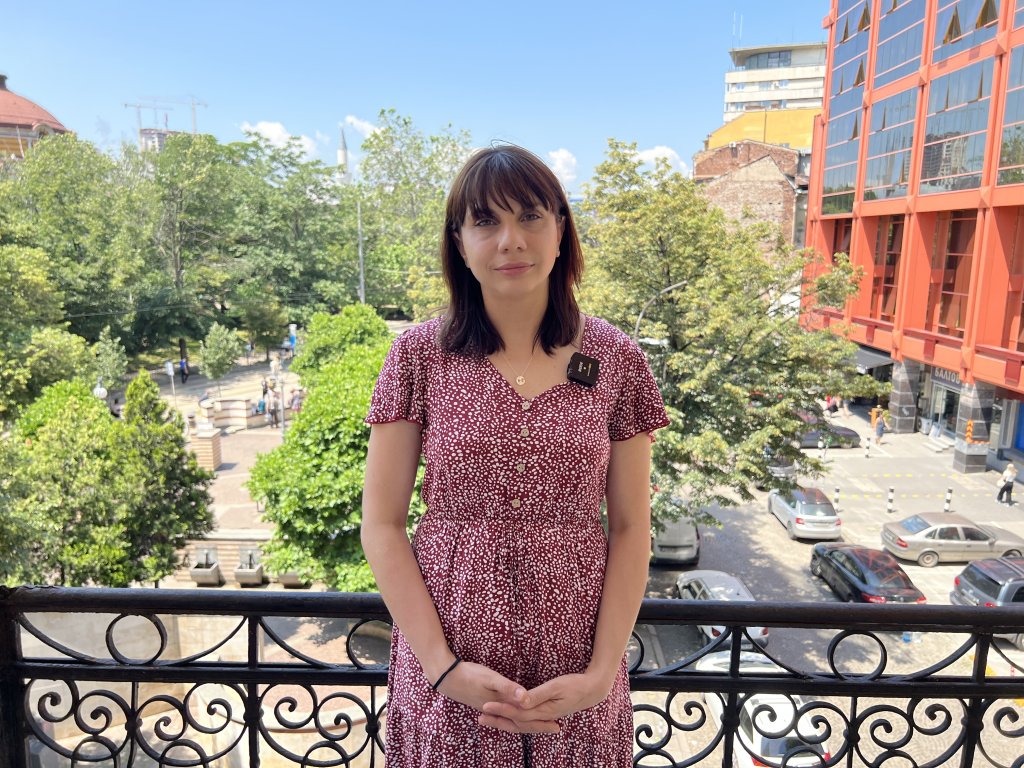
Jan Zietara from the Frontex Press Office told InfoMigrants on August 1, however, that the EU border watchdog is “not aware of any ‘unofficial migration centre’ in Bulgaria,” adding: “All detected migrants are handled by the host country’s authorities.”
InfoMigrants reached out to the European Commission for comment on unofficial detention centers for migrants in Bulgaria. The spokesperson for Home Affairs Anitta Hipper responded on August 16: “Under the Reception Conditions Directive, Member States must provide asylum applicants with material reception conditions, in particular housing, either materially or through financial assistance.”
She added: “People who do not have the right to reside in the EU and are subject to a return procedure under the Return Directive are entitled to basic conditions of subsistence, defined according to national legislation and in respect of their human dignity.”
Part 4: EU political pressure and surveillance
Bulgaria is bolstering security and surveillance at its border with Turkey in the hope of being admitted to the Schengen visa-free travel zone. But state actors, the EU and international organizations are walking a fine line of accountability.
When it comes to the authorities’ treatment of migrants at its borders, Bulgaria’s interior ministry insists that officers perform their duties in accordance with the principal of non-refoulement and that many claims of pushbacks are unfounded.
The ministry’s press office told InfoMigrants that the Border Police General Directorate “doesn’t tolerate violence against persons illegally crossing the border, and any report containing sufficient information is investigated thoroughly and accordingly.”
The interior ministry claims migrants are trained by people smugglers to “whistle-blow” in order to compromise the system, but did not elaborate.
“The migrants themselves do not want to be detained by the border police patrols, due to the fact that they are aware that in case of detention, they must be registered in EURODAC and AFIS (automated fingerprint identification), and even if at a later stage they manage to reach their desired destination, they are subject to return under the provisions of the Dublin Regulation or bilateral readmission agreements.”
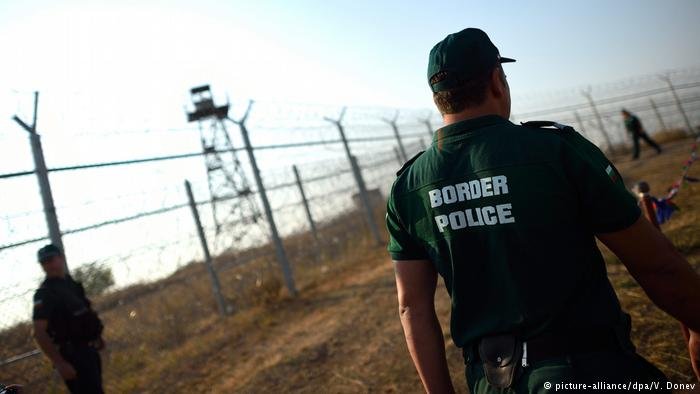
Kanev from the Bulgarian Helsinki Committee said he was not surprised by the ministry’s response because “they deny all allegations of violence and improper behaviour towards migrants…It is routine to deny police brutality, also for the prosecution.” He added that this is why Bulgaria has been found in violation of the European Convention on Human Rights on so many occasions.
Journalist Cheresheva also agreed that it is not uncommon for the Bulgarian government to deny allegations of pushbacks.
“I think the minister of interior, by declining the allegations, actually confirmed them,” she told InfoMigrants. “Even the opposition, even the pro-liberal parties did not comment on this topic.”
Cheresheva added that the publication of her findings on migrant pushbacks and that of Lighthouse Reports coincided with Bulgaria’s bid to join the Schengen area – not ideal for Sofia or Brussels.
Frontex, meanwhile, told InfoMigrants it “cannot comment on the reports of pushbacks of migrants by Bulgarian authorities.”
“We are not in a position to speculate or evaluate the actions of other services, countries and institutions,” the EU border watchdog said, adding: “All detected migrants are handled by the host country’s authorities.”
What did the EU Commission, UNHCR and Red Cross say about pushbacks?
When asked about migrant pushbacks in Bulgaria, Hipper, the European Commission spokesperson for Home Affairs, told InfoMigrants that the “Commission takes any allegations of pushbacks and mistreatment seriously. Any such treatment of people, if confirmed to be true, would be intolerable.”
She stressed that “efficient border management must be firmly rooted in the respect of human dignity and of the principle of non-refoulement.”
However, she said it was up to the national authorities of EU member states (in this case Bulgaria) to “investigate any pushbacks and violence allegations, with a view to establishing the facts and properly follow-up any wrongdoing.”
Boris Cheshirkov, an external relations officer at UNHCR Bulgaria, did not comment on Bulgaria specifically when asked about pushbacks in the country. Instead, he told InfoMigrants the UN refugee agency has “raised its concerns on the issue of collective expulsions and pushbacks of refugees and asylum-seekers and has been calling on states to investigate and halt these practices.”
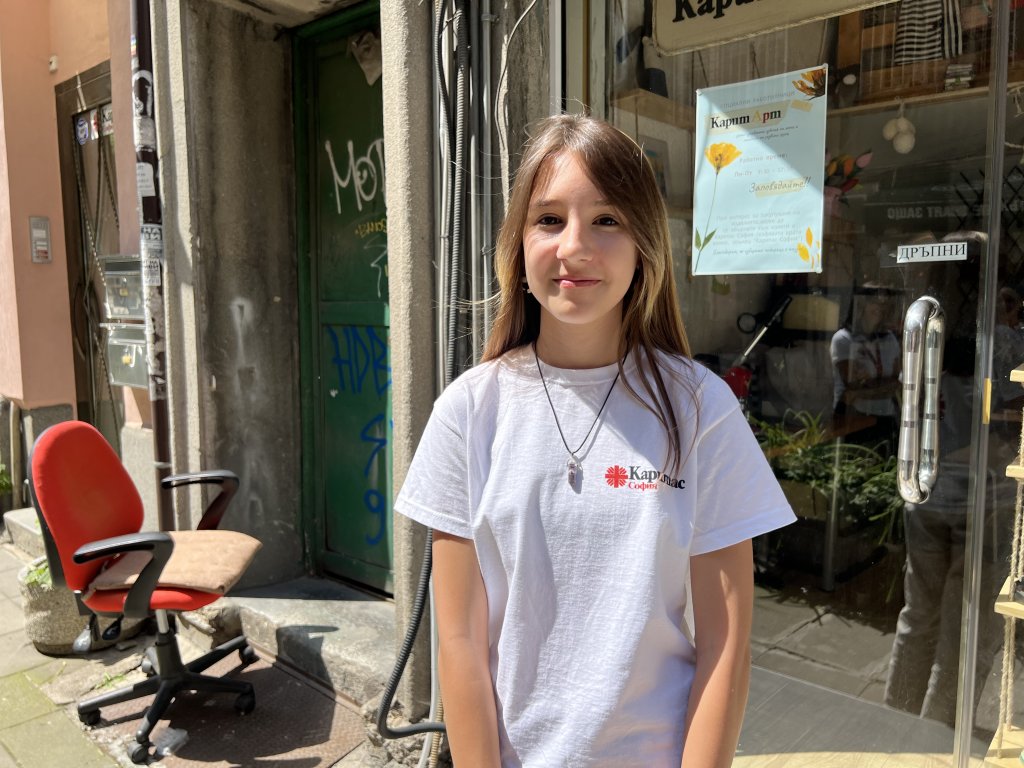
Preslava Lilova, director of International Cooperation and Programmes at the Bulgarian Red Cross, told InfoMigrants the humanitarian organization strives to provide relief and assistance to the refugee community in the country, but also did not comment on the organization’s knowledge of pushbacks in Bulgaria.
Kanev from the Helsinki Committee has his views on why that might be.
“The Red Cross is a semi-governmental organization,” he said. “It receives most of its money from the government.”
Journalist Cheresheva said she understands “it’s complicated” for organizations such as the UN and Red Cross to discuss pushbacks “because they have to collaborate with the Bulgarian state and it’s a no-go zone.”
“I think it’s a red line that big organizations do not want to cross,” she said.
EU security at the Bulgarian-Turkish border
President of the European Commission Ursula von der Leyen in February called the land border between Bulgaria and Turkey one of the EU’s “most pressing issues” due to soaring irregular border crossings, but did not comment on pushbacks. The Commission has since been working with EU member states to bolster its border management.
In March, it launched a pilot project at the Bulgarian-Turkish border to curb irregular crossings. The project, which is scheduled to end in September, promised to secure the border with vehicles, cameras, roads and watchtowers.
According to a June 7 press release from the Commission, Bulgaria has stepped up cooperation with Frontex, with measures including a “roadmap to make use of the agency’s full capacity for border management and returns with additional sources, such as standing corps and technical equipment.”
It also said Bulgaria strengthened cooperation with Europol to counter smuggling networks.
“Ensuring effective management of the EU’s external borders is a key priority for which the Commission has allocated to the Member States (Bulgaria and Romania) €4,3 billion, alongside €6,3 billion for migration management,” the press release also noted.
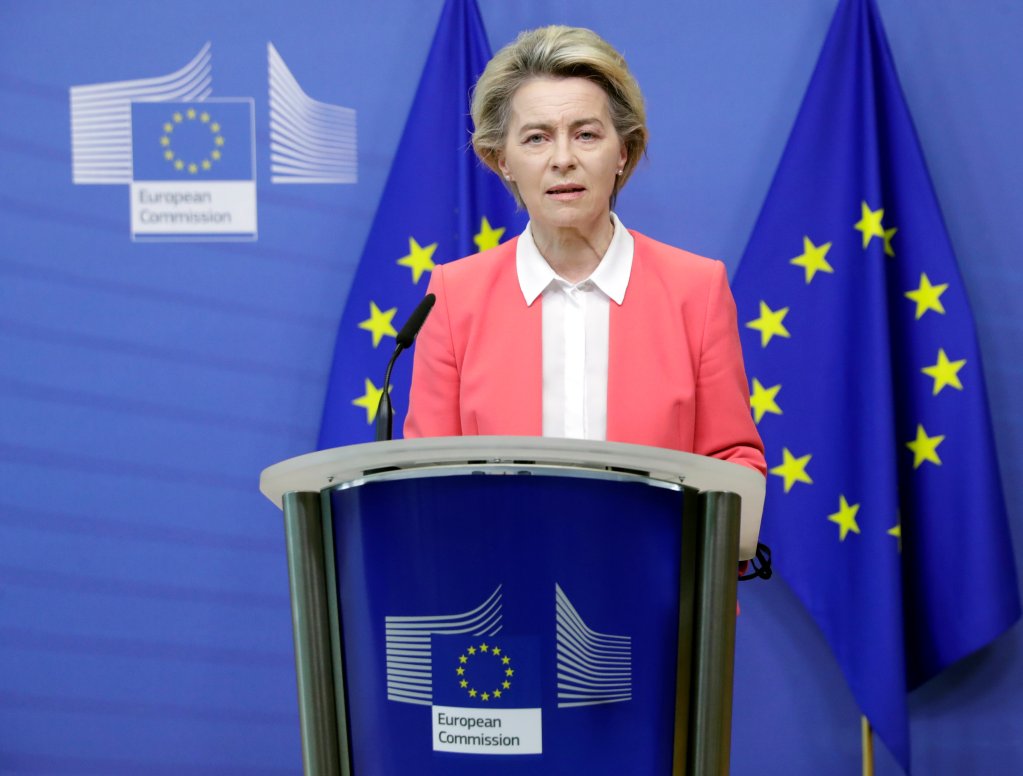
Over €205 million ($225 million) are earmarked for Bulgaria under the new generation of Home Affairs funds, Commission spokesperson Hipper told InfoMigrants. “These funds are used also for surveillance equipment and training,” she said.
Bulgaria has also “taken operational steps to improve the accelerated asylum procedures, and it is expanding its operational cooperation with the European Agency for Asylum (EUAA), as well as with Frontex and Europol, in the areas of border management and returns,” Hipper added. Two guest officers from Europol are also deployed at the border, she said.
Following a request for comment, Europol’s Press Office, however, told InfoMigrants: “We do not work in Bulgaria, or at the Bulgarian border.”
How are Bulgaria and Frontex boosting security at the Bulgarian-Turkish border?
Bulgaria meanwhile says it has stepped up controls along its 234-kilometer (145-mile) barbed wire fence covering almost the entire border with Turkey. Its border police prevented 164,000 “irregular crossing” attempts in 2022, compared to 55,000 in 2021, according to figures from Bulgaria’s Interior Ministry.
Frontex said its increased presence at the border is a precautionary measure aimed at boosting Bulgaria’s capacity at its land borders.
“As of today (August 1), there are 232 officers and staff deployed in Bulgaria,” Zietara from the Frontex Press Office told InfoMigrants. “This number changes frequently” as officers are deployed for a couple of months only, Zietara explained, adding that the EU border watchdog provides its officers with patrol cars and specialized equipment.
Frontex did not elaborate what “specialized equipment” entails or what is the standard procedure for Frontex officers when confronted with irregular migrants in Bulgaria. The organization also said it cannot comment on Bulgaria’s surveillance developments.
Bulgaria looks to join Schengen
Bulgaria is hoping to join Europe’s visa-free Schengen area by 2024. Austria and the Netherlands blocked Bulgaria’s accession bid in December over concerns the Balkan country was being too lax on irregular migration.
Journalist Cheresheva believes that talk of a border surveillance boost is a political tactic to soothe EU neighbors and make Bulgaria more palatable for Schengen in the eyes of Brussels.
“A lot of money has been pumped into this border…There have even been talks about building a wall along the border by the Austrian chancellor. But I think this was just political talk for internal use and political agenda,” she said.
Cheresheva also believes that violent treatment of migrants in Bulgaria is aimed at deterring them from crossing into Europe.
Like many journalists and media organizations, InfoMigrants was denied access to the remote barbed wire fence at the border (though access to the Kapitan Andreevo border checkpoint – an infamous entry point into the EU for smugglers – was granted).
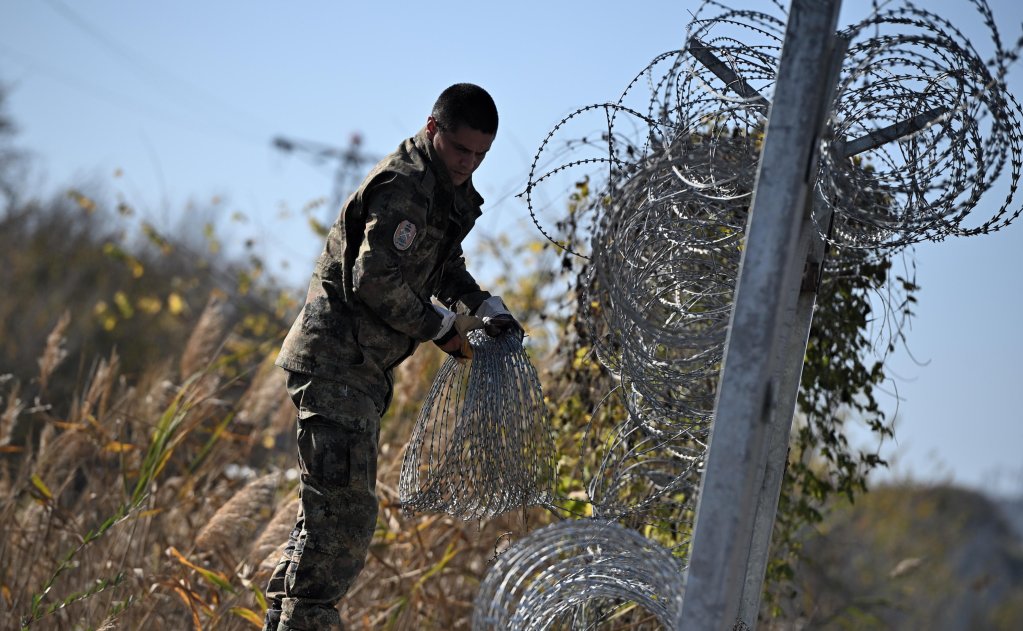
Is increased surveillance and security impacting pushbacks?
The press office of Bulgaria’s interior ministry told InfoMigrants that “cameras of the integrated border surveillance system record 24/7, and this ensures that any possible act of violence will be detected and recorded.”
Kanev from the Helsinki Committee said he believes pushbacks and violence against migrants “improved somewhat with the presence of Frontex.” But their presence “doesn’t seem to prevent this phenomenon entirely.”
For Cheshirkov from UNHCR, the “increasing border restrictions and pushbacks in Europe have contributed to refugees and migrants using riskier routes…thus putting themselves and their children in greater danger.”
Vladislav Damyanov, project manager at the charity Caritas Bulgaria, feels the same way. He warned that the fence and boosted security at the Bulgarian-Turkish border means migrants are finding it “more and more difficult to cross,” and that often the greater risk migrants face is not pushbacks but suffocation in the vans and minibuses used by smugglers to transport them to the EU.
*Name changed
The original article: belongs to InfoMigrants: reliable and verified news for migrants – InfoMigrants .
